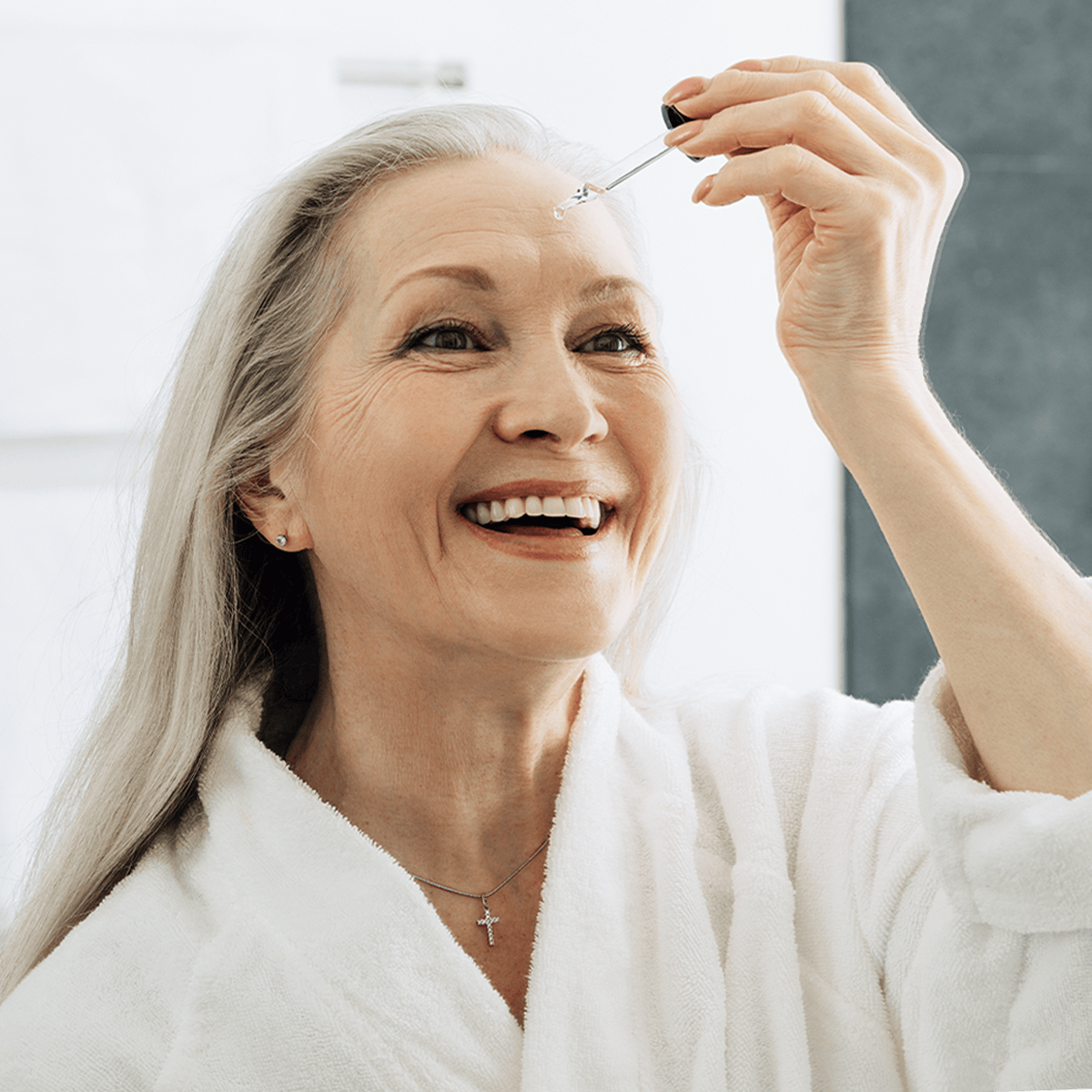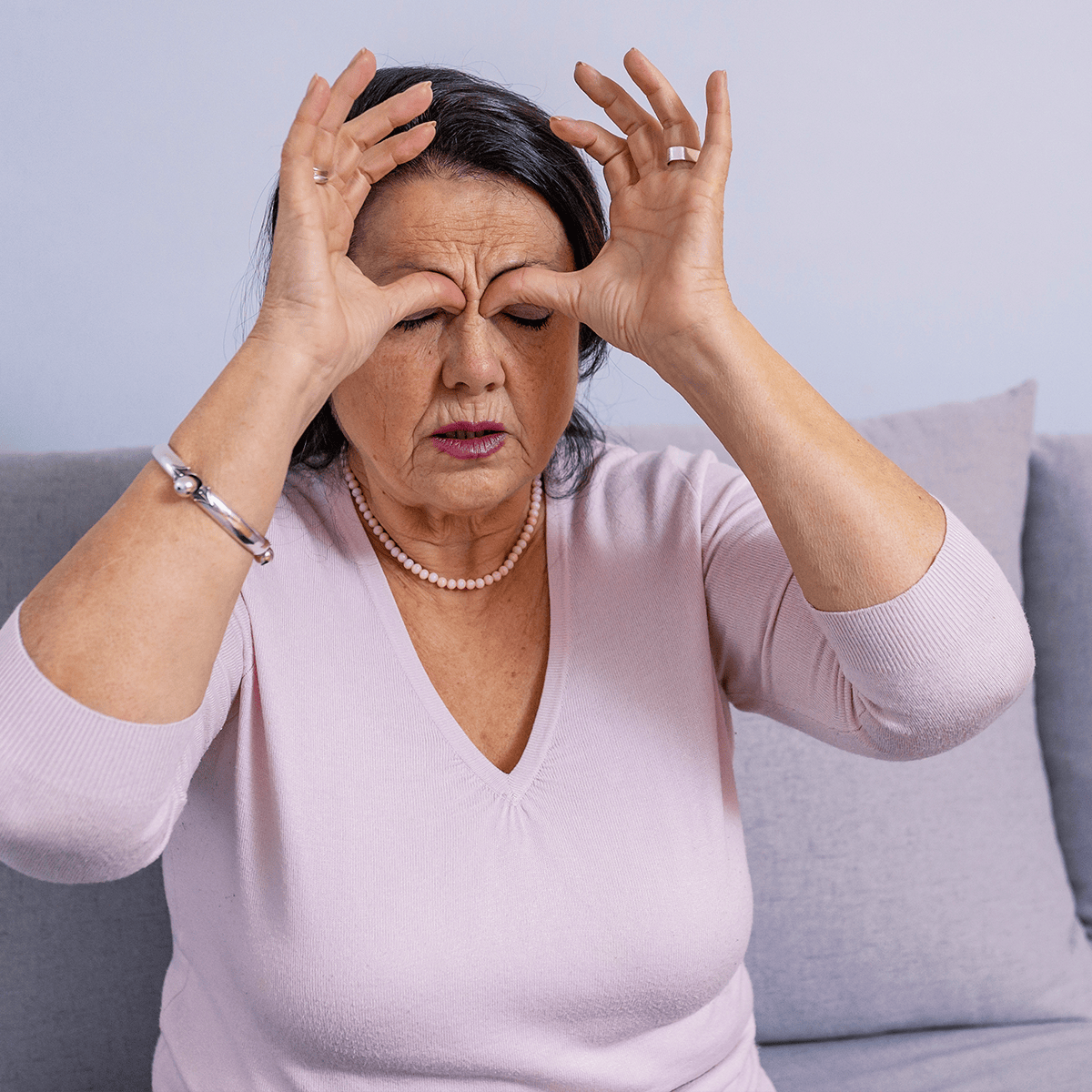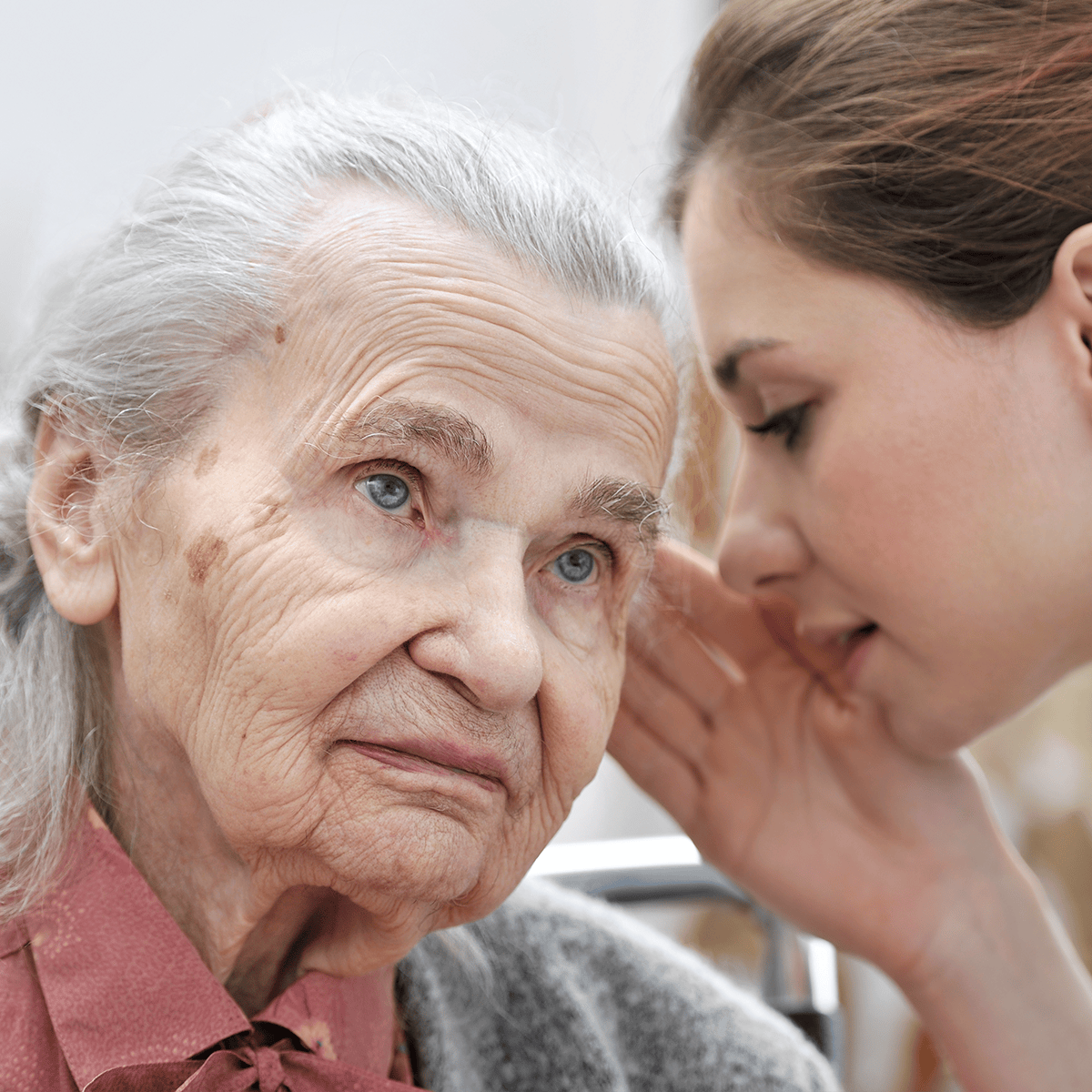5 Gardening Tips for Seniors
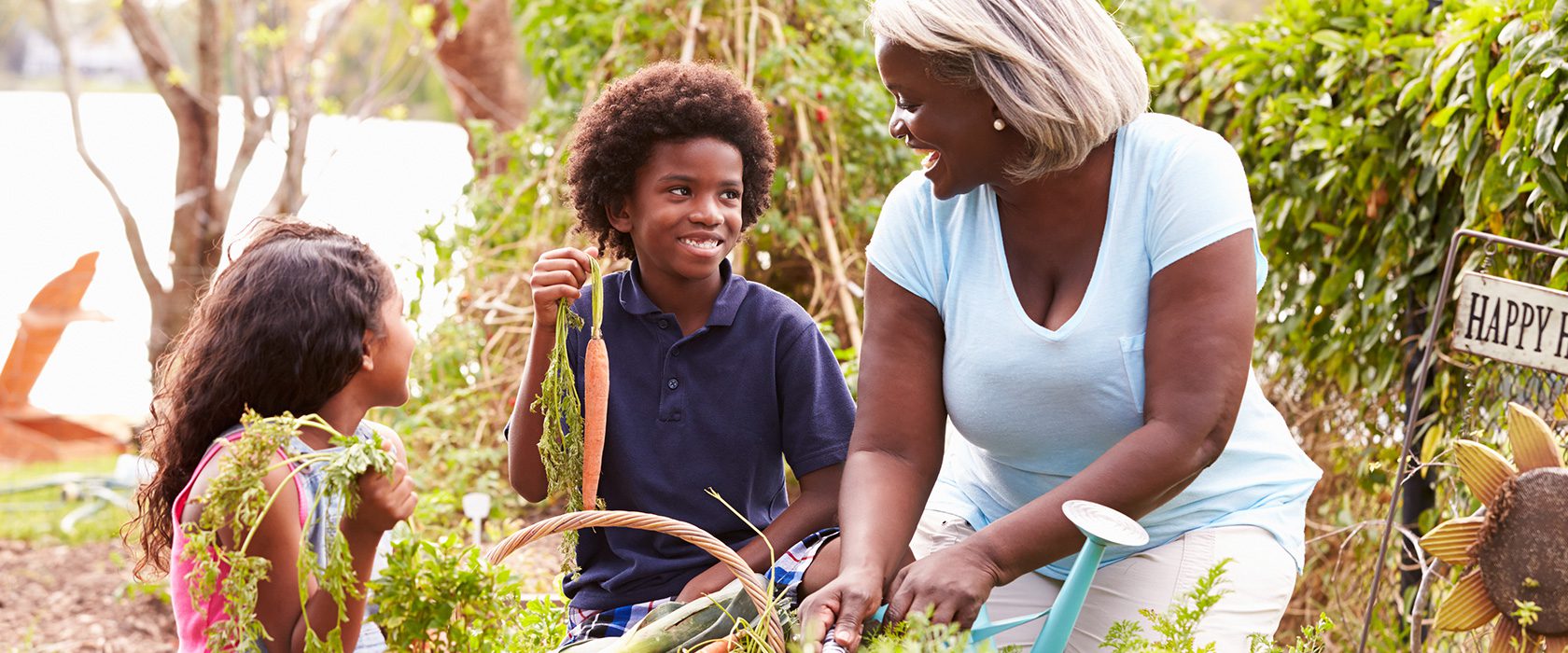
The weather has gotten warmer, and the days have grown longer (don’t forget to adjust your clocks for daylight savings time). Plants everywhere are beginning to bloom and your garden has come back to life with vibrant colors!
It’s time to take your tools out of the shed and turn to gardening. Not only does gardening make a great pastime but it also helps keep you active and engaged. When you tend to your garden, you’re also caring for yourself. You’ll also be happy to know that gardening offers many opportunities to promote better health, increase physical activity and improve mental health.
“The glory of gardening: hands in the dirt, head in the sun, heart with nature. To nurture a garden is to feed not just the body, but the soul.”
– Alfred Austin, English poet
Gardening and senior health – you bet!
Gardening for seniors has many health benefits that are perfect during your golden years. Maybe now you have a lot more time on your hands, or fewer responsibilities and are looking for ways to adjust your lifestyle. No matter the reason, you can enjoy being outdoors and tending to your garden knowing that you’re also contributing to your own well-being.
When you’re outside in your garden, your body gets a boost of vitamin D from the sunlight which increases calcium levels that help your bones and immune system. Sunlight also lowers blood pressure, according to the American Stroke Association. “UV light releases nitric oxide in the skin, which dilates arteries and lowers blood pressure.”
Remember to apply sunscreen and avoid direct sun exposure for prolonged periods of time. This can help protect you from harsh UV rays that may cause sun damage, liver spots and wrinkles. Although the effects of sunlight have healing properties, it can also have negative effects if you don’t work to protect yourself from harmful ultraviolet rays. Don’t be afraid! Grab a bottle of sunscreen, your favorite sun hat and head outside to soak in the sun while you see to your garden.
Increased fitness
Did you know consistent yard work helps you burn calories while building muscles from different gardening activities like digging, raking, mowing, and lifting various plant pots and tools? As you garden, you’re also increasing your dexterity and strength which make this pastime, fitness time!
Physical activity is anything you do that moves your body and burns calories, according to the American Heart Association. That’s right, gardening is included in a list of moderate-intensity aerobic activities and you’re working hard, aren’t you? Gardening typically requires a medium amount of effort, and you’ll notice your heart beating a little faster and your breathing might be a little harder than normal. Keep going!
Have a large garden project you’re looking to tackle? Don’t overextend! It’s important to stay active, but also exercise safely. Keep reading below for a few safety tips and remember to ask for help when you need it from family, friends or local yard maintenance groups. Explore different recommendations for safe physical activity here.
Improved mental health
What lowers stress and increases serotonin while encouraging mobility? You guessed it! Gardening and outdoor activities not only promote better physical health, but better mental health too. When outdoors you may experience a sense of calmness as you pull newly sprouted weeds, breathe in fresh air and feel the warmth of the sun on your skin.
Not only does sunlight help with bone health in the form of vitamin D, but it also serves as a natural antidepressant. “The active form of vitamin D, calcitriol… plays a role in the synthesis of dopamine, epinephrine and norepinephrine–three hormones that also can play the role of neurotransmitters in the brain.” Psychology Today suggests that there is a link between vitamin D deficiencies and depression.
This is especially true during the winter season when there is less sunlight. Take advantage of this time and go out and enjoy the sun. You’ll feel a lot better, and your garden will look a lot better too!
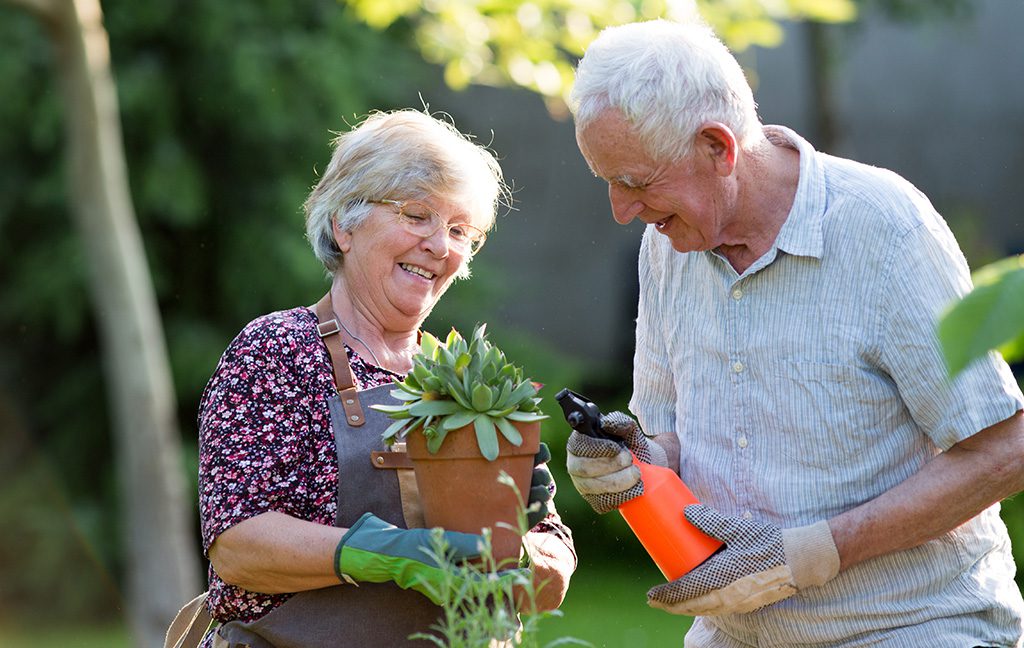
5 gardening tips to help seniors
- Choose raised planter beds or potted beds. A lot of bending and kneeling is required when you garden. This can be especially hard for seniors and increases the risk of falls. Raised beds help mitigate this problem plus they’re also good for soil health and drainage.
- Wear protective gear. If you are going to be outdoors in the sun for a while, remember to apply sunscreen and wear a hat to cover the sun from your eyes. Wear earmuffs or earplugs if you are going to be mowing or using tools that register greater than 85 dB. For example, the typical lawn mower registers at 90 dB and prolonged exposure can affect your hearing health.
- Garden together. Time to increase your mental health with healthy socialization. Help your garden grow while growing your relationships. Reach out to a friend or family member to schedule time in the week to garden together.
- Practice proper form. When you garden, you’re going to be bending, kneeling and moving around a lot. It’s important to practice good ergonomics so you don’t strain a muscle or hurt yourself. Want to learn more about how you can practice good form while gardening? Check out these ergonomic tips.
- Carry your cell phone with you in the garden. Reduce your risk of injury by carrying your cell phone with you in case you need to get a hold of someone quick. If you or someone you know has hearing loss, captioned mobile calls can help. Learn more at clearcaptions.com/mobile-phone/.
From everyone at ClearCaptions, we wish you a warm and happy spring! May your garden flourish and your connection with friends and family continue to blossom. So, what are you waiting for? Your garden is calling! Enjoy the sun, nature, and all the health benefits that come with it.

